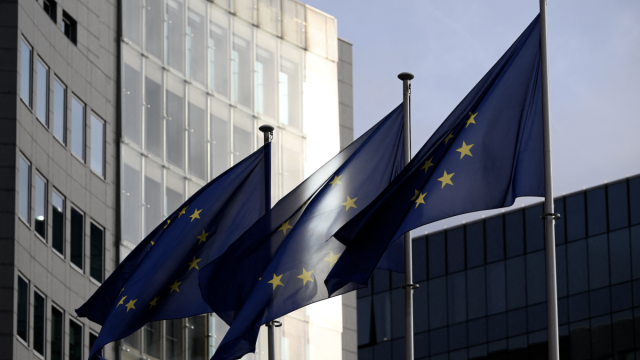Alexei Kozlov, a businessman who turned into a celebrity for blogging about his experience behind bars, won a major victory Tuesday when the Supreme Court ordered that his case, which he and supporters call fabricated, be sent back for trial.
Kozlov, who has turned into a poster child for the thousands of businesspeople jailed after apparently falling victim to government-sanctioned corruption, will be freed from prison, and his case will have to restart from scratch at Moscow's Presnensky District Court under Supreme Court Judge Alexei Shurygin's decision to overturn Kozlov's 2008 sentencing, legal news web site Pravo.ru .
The ruling is also a victory for Kozlov's wife, prominent journalist Olga Romanova, who has waged a campaign for her husband's release since he was imprisoned on fraud and embezzlement charges three years ago.
In a brief telephone interview, Romanova said the main success was that the Supreme Court had supported the defense's argument that the original sentence was unlawful.
"The decision confirms that the presumption of innocence was ignored," she said.
Romanova, a journalism professor at the Higher School of Economics who formerly worked as a television news anchor, has accused Kozlov's one-time business partner, former Federation Council Senator Vladimir Slutsker, of fabricating the case.
She has said in numerous interviews that Slutsker was uncomfortable with her comments on Ren-TV, for years the country's only opposition-minded national channel. Romanova lost her job in 2005 when Ren-TV changed ownership.
With her assistance, Kozlov launched his award-winning , named after the notorious Moscow pretrial detention center.
It was not immediately clear Tuesday when Kozlov, who is incarcerated in the Perm region, would be freed.
Romanova said the written Supreme Court decision would first have to arrive at the prison colony where he is jailed. "They will send it by slow mail," she was quoted as saying by Pravo.ru, adding that she planned to leave immediately for Perm and arrive there Wednesday.
Yury Kostanov, a lawyer for Kozlov, criticized the Supreme Court's decision as imperfect. "The case should have been closed immediately, because now we have to drag this whole rigmarole again through the courts," he said, legal news agency Rapsi reported.
Kostanov also complained that the court had upheld the legality of all of Kozlov's business deals with Slutsker.
The former senator has denied wrongdoing. At Tuesday's hearing, prosecutors said the case was based on Slutsker's declaration that his company had been defrauded of shares worth 28 million rubles ($900,000) and that Slutsker had not sought Kozlov's imprisonment.
Kozlov was originally sentenced to eight years in prison on charges of illegally obtaining shares in Iskozh, a company headed by him but controlled by Slutsker's Finvest holding.
The prison term was later reduced to seven years and, in July, the Supreme Court handed Romanova a first significant victory when it unexpectedly backed Kozlov's appeal and ordered the Moscow City Court to reconsider the case.
On July 29, the city court reduced Kozlov's sentence to five years.
Critics have said President Dmitry Medvedev's promises to improve the country's business climate lack credibility as long as thousands of businessmen remain behind bars.
Ahead of British Prime Minister David Cameron's visit to Moscow earlier this month, four former British foreign secretaries urged him in an open letter to press Medvedev to protect companies against corruption. The letter said hundreds of thousands of businesspeople were jailed after falling victim to corruption authorized by the government.
Medvedev initiated amendments to the Criminal Code to soften the country's punishment for economic crimes earlier this year.
But Romanova said Tuesday that Medvedev's efforts had been reversed by a that the Kremlin sent to the Duma last week that limits the evidence that can be used in tax crime cases in court.
"The official reason is to prevent competitors from getting company information, but really this means reducing transparency," Romanova told Pravo.ru.
Yana Yakovleva, founder of the Business Solidarity lobby group, who advocates amnesty for jailed entrepreneurs, said Kozlov's case reflects dissonances in the country's judiciary. "Thank God that these dissonances exist," she said by phone.
Yakovleva, who formed the group after spending seven months behind bars because of a business dispute, cautioned that success can be achieved only if victims' supporters try hard and that not everybody is able to repeat Romanova's efforts.
"This is an award for Olga's relentless campaigning," she said, noting that Romanova was accompanied by 50 supporters and journalists at Tuesday's hearing.
A Message from The Moscow Times:
Dear readers,
We are facing unprecedented challenges. Russia's Prosecutor General's Office has designated The Moscow Times as an "undesirable" organization, criminalizing our work and putting our staff at risk of prosecution. This follows our earlier unjust labeling as a "foreign agent."
These actions are direct attempts to silence independent journalism in Russia. The authorities claim our work "discredits the decisions of the Russian leadership." We see things differently: we strive to provide accurate, unbiased reporting on Russia.
We, the journalists of The Moscow Times, refuse to be silenced. But to continue our work, we need your help.
Your support, no matter how small, makes a world of difference. If you can, please support us monthly starting from just $2. It's quick to set up, and every contribution makes a significant impact.
By supporting The Moscow Times, you're defending open, independent journalism in the face of repression. Thank you for standing with us.
Remind me later.






